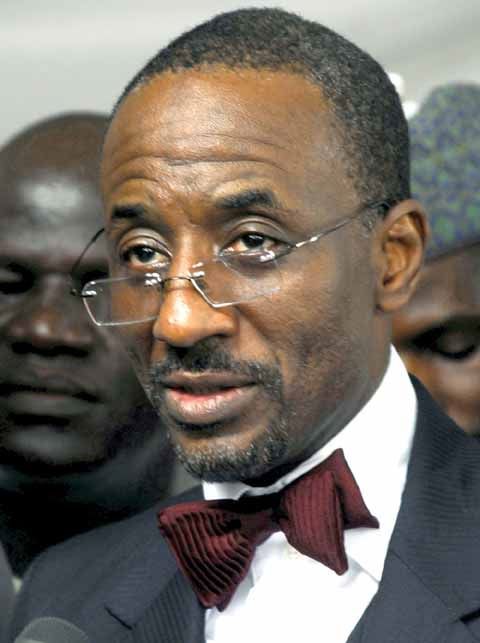Anglican ‘no’ to Sharia banking in Nigeria: The Church of England Newspaper, June 2, 2011 June 2, 2011
Posted by geoconger in Church of England Newspaper, Church of Nigeria, Islam, Politics.trackback

Sanusi Lamido Sanusi, Governor of the Central Bank of Nigeria
First published in The Church of England Newspaper.
Church leaders in Nigeria have denounced the introduction of Sharia banking in the West African nation, saying the introduction of religion into the financial services sector violates the law and will further divide the country along sectarian lines.
On May 8 the Diocese of Ughelli released a statement calling for the government to force the Central Bank of Nigeria to back down from its proposal to issue licences to Sharia banks.
The Ughelli synod noted “with suspicion the haste with which approval was granted for the issuance of a licence for Islamic banking in Nigeria, without any known or overt legislative support from the National Assembly.”
Sharia banks were banned by law and “could provoke negative reactions from other Nigerians who are not practising Muslims,” the leaders of the Delta State diocese said.
On Jan 13, 2011 the Central Bank of Nigeria released an official circular setting the “Framework for the Regulation and Supervision of Institutions Offering Non-Interest Financial Services in Nigeria,” stating the new banks must operate under Sharia law in order to be granted a licence.
Created in the 1970’s in Pakistan, the modern practice of Islamic banking follows conventional banking practices, except that it is governed by Muslim Sharia law and its Fiqh al-Muamalat (Islamic rules on transactions). The proposed Nigerian Sharia banks would be permitted to take non-interest bearing deposits and to issue Islamic mortgages and loans.
The plan would allow depositors to take shares in the bank while loans would be structured according to Islamic law. Instead of loaning money to a buyer to purchase a home or car and pay the bank back over time with interest, the bank would purchase the goods in its own name at a higher-than-market price. The bank then holds title to the asset as the buyer makes payments until the loan is paid.
An attorney for one of the groups opposed to move told the Nigerian Compass that while it was within the rights of the Central Bank to regulate the financial sector, “but with this new guideline, what they have simply done is to shut out Buddhists, Animists, Atheists, Christians and others from Non-Interest Financial Institution business by saying you must be Sharia-compliant before you can engage in this type of business or to get licence.”
“Nobody is against Islamic Banking or Muslims but what we are saying is that you can’t tell me to be Sharia-compliant to engage in this business in a secular state. There is Islamic banking in Europe and other places, but you can’t find it in their laws that you must be Sharia-compliant” in order to receive a government licence.
Central Bank governor Sanusi Lamido Sanusi rejected the charges the new code violated the law and broached the line between church and state. “There is nothing called Sharia banking,” he told Next last week in Abuja. “There is non-interest banking or Islamic banking, which is a financial product all over the world. This is the only country in the world that I know that Islamic banking is being seen as a religious issue,” Mr. Sanusi said.
Nigeria’s 1991 Banking Act forbids banks from using the words “Christian, Islamic, Muslim, Koranic or Biblical in their names. The new Sharia banking regulations should be cancelled, church leaders argued, as it promotes religious banks in violation of the letter and spirit of the law.
Comments
Sorry comments are closed for this entry
Sanusi Lamido is sick. Where on earth is sharia banking practiced. I’m sure this jerk wont succeed with his negative plans. Ram!!!!!!!!!!!!